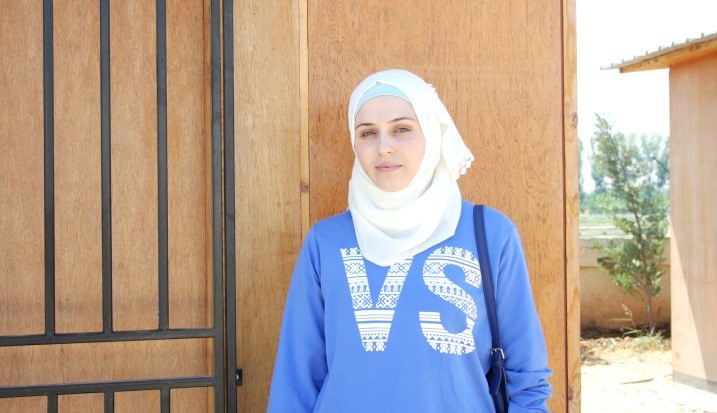MEDAIR’s alignment with the CHS helps maintain Syrian refugees’ long-term health
Commitment 3 of the Core Humanitarian Standard states: “People in crisis can expect that they are not negatively affected and are more prepared, resilient, and less at-risk as a result of humanitarian action.” Since 2017 our volunteers have provided 232, 482 health messages to the Syrian refugees.

Due to the Syria crisis, Lebanon is hosting since 2011 the largest per capita refugee population in the world. Over one million Syrian refugees, trying to escape the crisis happening in their homeland, have taken shelter in Lebanon, mostly in informal settlements in the Bekaa Valley. Being forced to live in an informal settlement outside of one’s own country with few resources is a tough burden. It’s even harder without knowing where to go for health care.
.jpg) The informal settlements in the Bekaa Valley can be a tough place to live. There is limited access to safe drinking water or facilities such as showers and toilets. Many people living here have limited sources of income, and there is only a limited amount of space in which people can live. These living conditions can facilitate the spread of illnesses and infections such as lice and diarrhoea.
The informal settlements in the Bekaa Valley can be a tough place to live. There is limited access to safe drinking water or facilities such as showers and toilets. Many people living here have limited sources of income, and there is only a limited amount of space in which people can live. These living conditions can facilitate the spread of illnesses and infections such as lice and diarrhoea.
Medair’s Community Health Volunteers, particularly the Syrian ones, enable the development of local leadership in their capacity. These Community Health Volunteers are trained to conduct health promotion and awareness sessions in the communities where the refugees live. These trained local leaders will act as “self-responders” in the event of future crises, taking steps to ensure that marginalized and disadvantaged groups are appropriately represented – by identifying health and other issues and referring them to the right institutions.
The CHVs run separate sessions for men and women. In both sessions, CHVs deliver public health messaging designed to keep families safe and healthy in the communities where they live, often where there is limited access to safe water and adequate housing. These messages include the importance of regular hand-washing and community cleanliness in areas where people live close together, and using potable water for drinking, or preparing food.

Each session is also catered towards the appropriate audience. For example, the CHVs will speak to men about family planning and spacing out children, and emphasise the positive impact this will have on their wives’ health. For women, the CHVs will deliver messaging around the importance of regular visits to the health clinic during pregnancy and after having a baby. Training also addresses family health, and the impact that this will have both on their families, and on the communities where they live.
Commitment 3 of the Core Humanitarian Standard on Quality and Accountability (CHS) states: “People in crisis can expect that they are not negatively affected and are more prepared, resilient, and less at-risk as a result of humanitarian action.”
Since 2017 our volunteers have provided 232,482 health messages to the Syrian refugees. These messages and acquired capacity will remain in the communities even if Medair is no longer there, thus ensuring that Medair is building on local capacities and working towards improving the resilience of communities and people affected by crisis.
In partnership with Tearfund and ACCTS, Medair’s Community Health Volunteers program is generously funded by EU Regional trust fund ‘Madad’.
